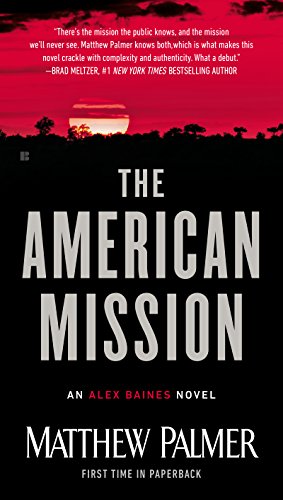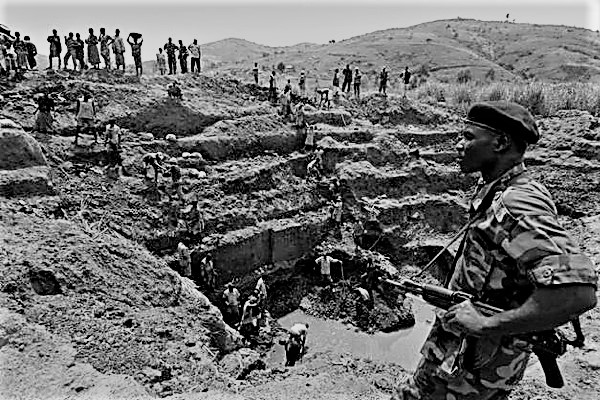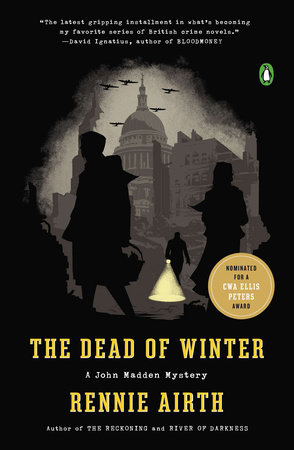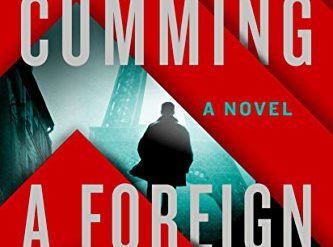
At times it seems that Africa is at war with itself. The list of border conflicts, civil wars, insurrections, and terrorist attacks in recent decades seems endless. They’re too numerous to mention, but three stand out for their scope and ferocity: the Rwanda genocide, Darfur, and the unending wars in the Democratic Republic of the Congo (DRC). And all three figure prominently in Matthew Palmer’s heart-stopping diplomatic thriller, The American Mission. This is a novel that brings to the fore the ugly undercurrents in American foreign policy, and it comes from an author with more than twenty years of experience as an officer in the US Foreign Service.
Alex Gaines is a haunted man. Three years earlier he had attempted in vain to persuade UN peacekeepers to halt a janjaweed massacre in a Darfur refugee camp. There, he witnessed the raw exercise of evil and, in saving a six-year-old girl from the slaughter, gained a daughter he would soon adopt. But the nightmares return again and again. Now, in 2009, he is marking time as a US consul in Conakry, Guinea. He’s on the verge of taking a corporate job that will release him from the ugly compromises of the Foreign Service when he receives an offer he cannot refuse. His friend and mentor, Ambassador Howard “Spence” Spencer, invites him to transfer to Kinshasa as his Political Counselor, the number three position in the American embassy in the Democratic Republic of the Congo.
The American Mission by Matthew Palmer (2014) 422 pages @@@@@ (5 out of 5)

A diplomatic thriller about the violence-ridden minerals trade
Not long after arriving in the Congolese capitol, Alex learns that a US-based conglomerate, Consolidated Mining, exercises unusual influence with both the corrupt Congolese government and the American embassy. And we learn from the novel’s other principal character, Marie Tsiolo, that Consolidated is also deeply enmeshed in the violence-ridden minerals trade in the Eastern Congo. Marie is the daughter of a Principal Chief of the Luba people and a mining engineer with rare talent who trained in South Africa’s leading university.
Soon, Alex and Marie find themselves working together, first to release a group of the company’s hostages from a fearsome group of militiamen, and later to protect her village from attack by the genocidaires (Hutus) who took refuge across the Rwandan border in the DRC’s east. They find an unlikely ally in the CIA’s Station Chief in Kinshasa. The author does an excellent job painting a picture of the unfamiliar surroundings as well as the issues that the contending forces are fighting over. But, in the final analysis, The American Mission is a cracking good story, well told. It’s a diplomatic thriller that thrills.
A novel that poses uncomfortable questions
The American Mission poses uncomfortable questions for Americans. How is our foreign policy made? Of course, we know (or at least can find out) what Presidents and Secretaries of State say about international affairs when they speak in public. And we can follow the debates and hearings in Congress on C-SPAN or (sometimes) CNN. But to what extent do these broad-brush policies actually determine what takes place overseas? It’s naive to think that fifteen thousand diplomats, two hundred thousand soldiers, and an uncounted number of spies for the CIA—much less the innumerable businesspeople who are taken to represent America no matter what anyone says—will simply follow orders and directives laid down as many as thousands of miles away. But confusion, misinterpretation, and the incompetence or ill will of individuals are a relatively small part of the problem.
It’s far more significant to ask who really calls the shots in US foreign policy. Ever since the days of the Robber Barons, when the railroads effectively owned Congress and the White House, perceptive observers of American politics have wondered to what extent America’s stance abroad has been driven by the profit motive.
What IS America’s mission abroad?
As Matthew Palmer implies in this novel, “the American mission” is above all to protect and promote the interests of US-based corporations. Pronouncements about human rights and the promotion of democracy fall by the wayside when US economic interests are at issue. Of course, like most generalizations, this assertion is at best an oversimplification. Harbored within the labyrinthine reaches of the American government is a diversity of opinion that reflects the needs and values of a thousand contending interests—including those of the idealists who flock to public service. And that diversity makes itself felt in the exercise of US foreign policy. Regardless, there is surely a great deal of truth in the generalization.
A few geeky facts for trivia buffs
Few Americans grasp the sheer size of the African continent, the world’s second biggest after Asia with nearly 12 million square miles. It’s almost four times the size of the continental United States. Africa is home to 1.3 billion people (roughly the population of India or China). And the DRC, at 905,000 square miles, is the continent’s third largest country. It houses an estimated 90 million people in an area more than five times the size of the state of California and equal to that of Western Europe.
In A Note from the Author at the conclusion of this diplomatic thriller, Matthew Palmer characterizes the Congo as “a baroque cathedral of violence”—and so it is. At least three million Congolese died under the four-decade stewardship of Belgian King Leopold II (1835-1909). And since the Congo gained its independence in 1960, many millions more have perished in conflicts far too numerous to mention. In just the ten-year period from 1998 to 2008 an estimated 5.4 million died.
About the author
Matthew Palmer is a two-decade veteran of the United States Foreign Service who has worked all around the world. He is the author of four critically acclaimed diplomatic thrillers of which The American Mission was his first. He is the son of the late Dr. Michael Palmer (1942-2013), author of dozens of medical thrillers, the most recent of which were published posthumously in collaboration with Daniel Palmer, Matthew’s brother, who is also a novelist.
For additional reading
For a more substantive history of the country now known as the Democratic Republic of the Congo, I recommend—as does Matthew Palmer in his Acknowledgments—popular historian Adam Hochschild‘s masterful study of the Belgian colonization of the Congo, King Leopold’s Ghost.
You might also enjoy my posts:
- Top 10 mystery and thriller series;
- 20 excellent standalone mysteries and thrillers;
- 5 top novels about private detectives; and
- Two dozen outstanding detective series from around the world.
For an abundance of great mystery stories, go to Top 20 suspenseful detective novels (plus 200 more). And if you’re looking for exciting historical novels, check out Top 10 historical mysteries and thrillers reviewed here (plus 100 others).
And you can always find my most popular reviews, and the most recent ones, plus a guide to this whole site, on the Home Page.


























